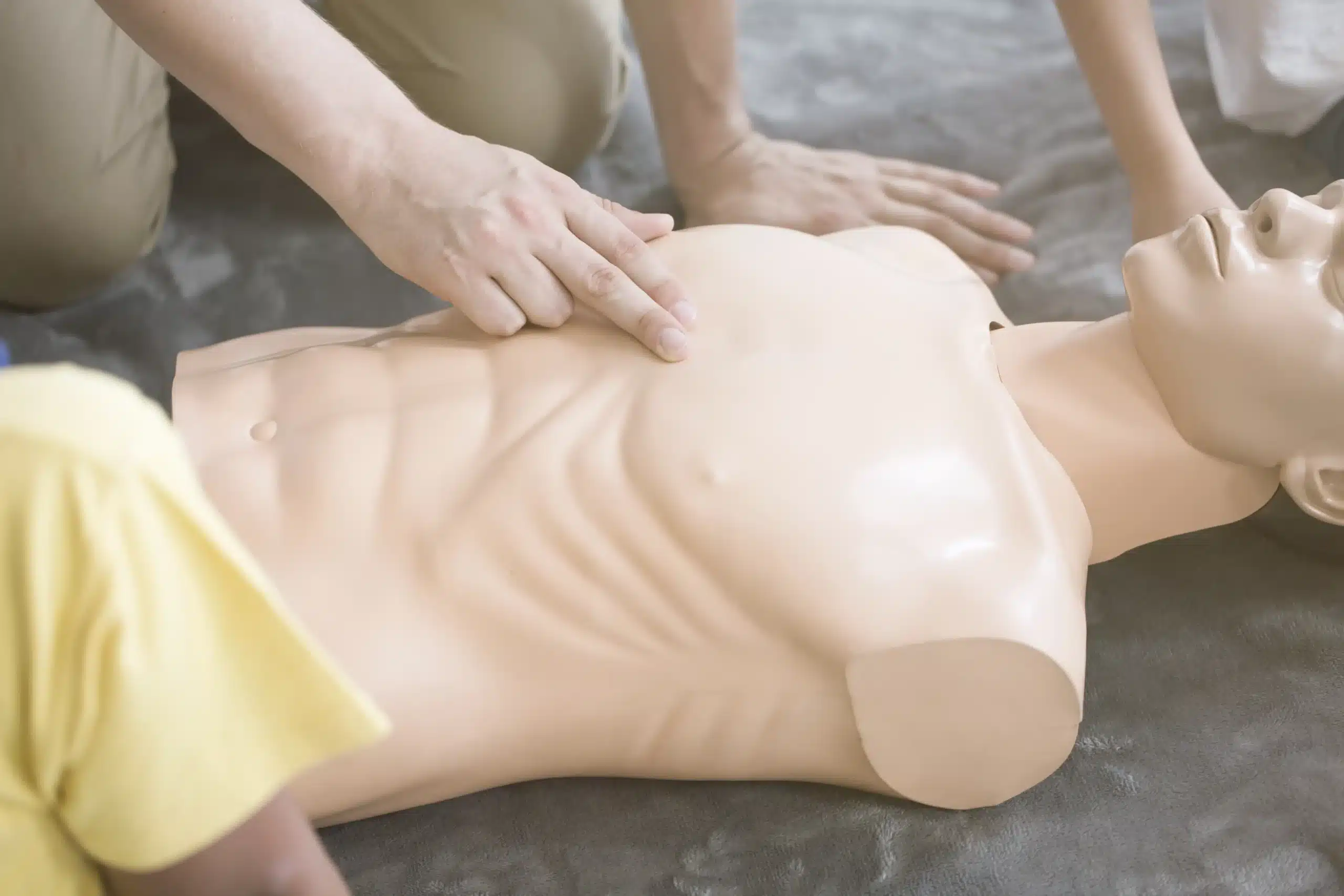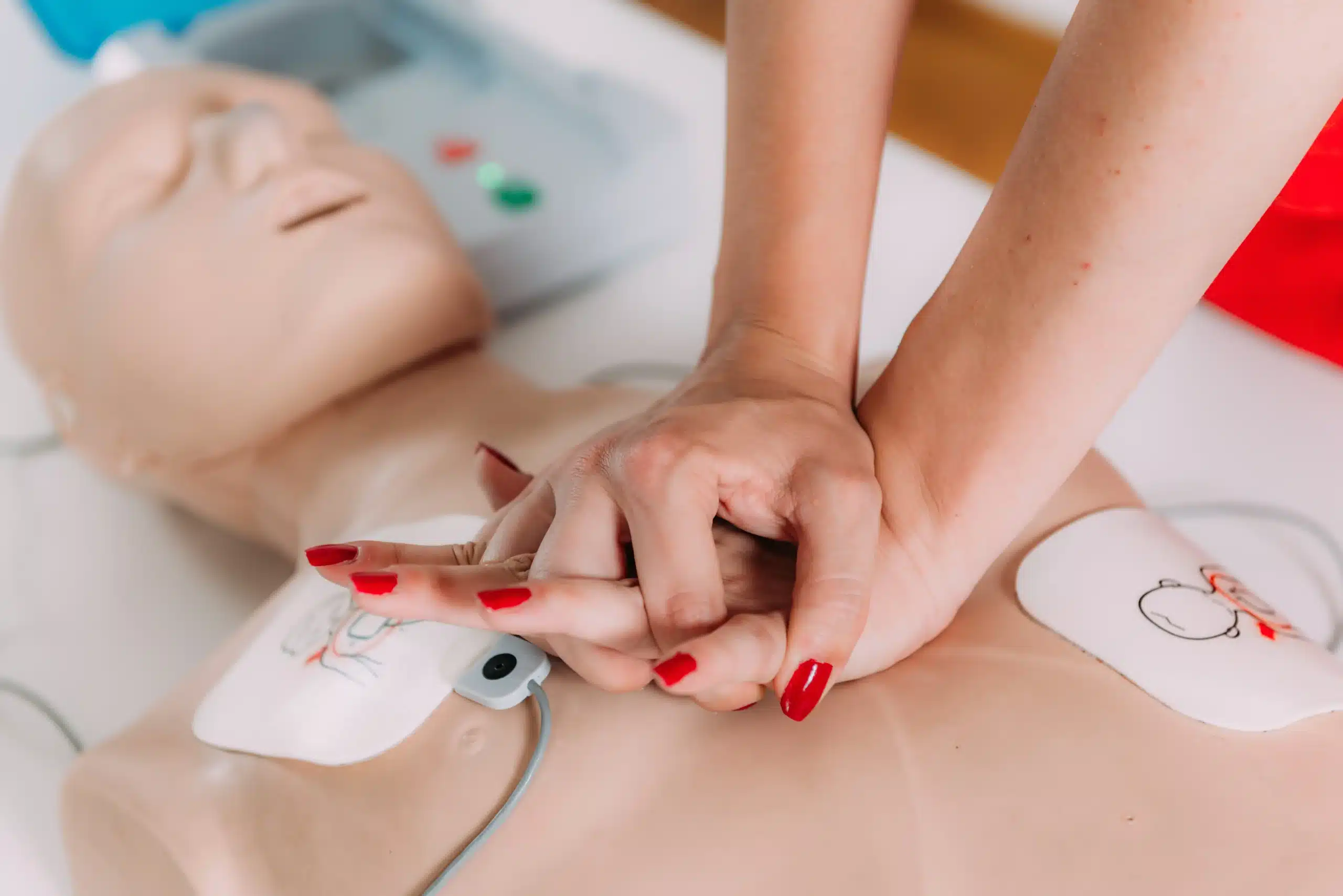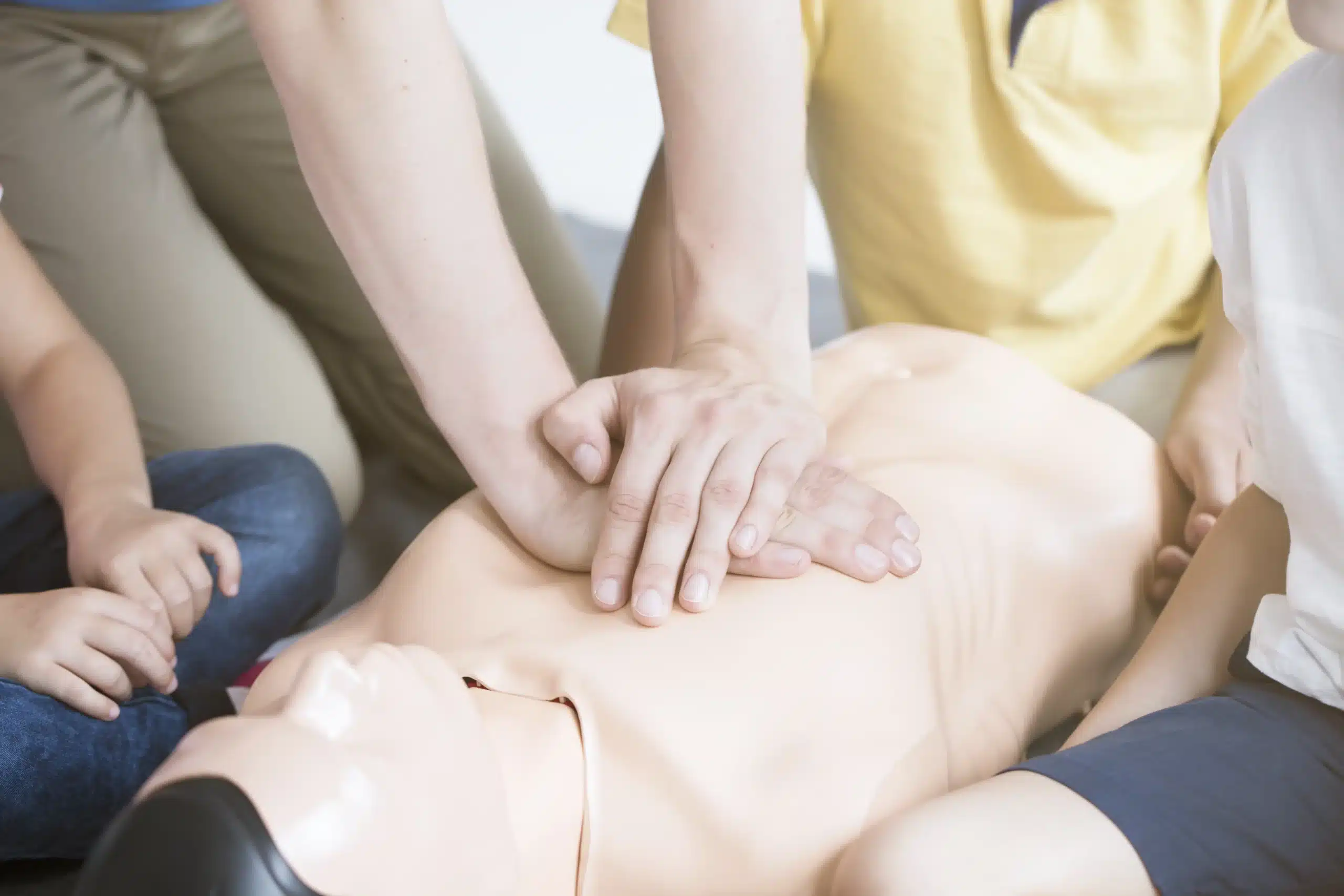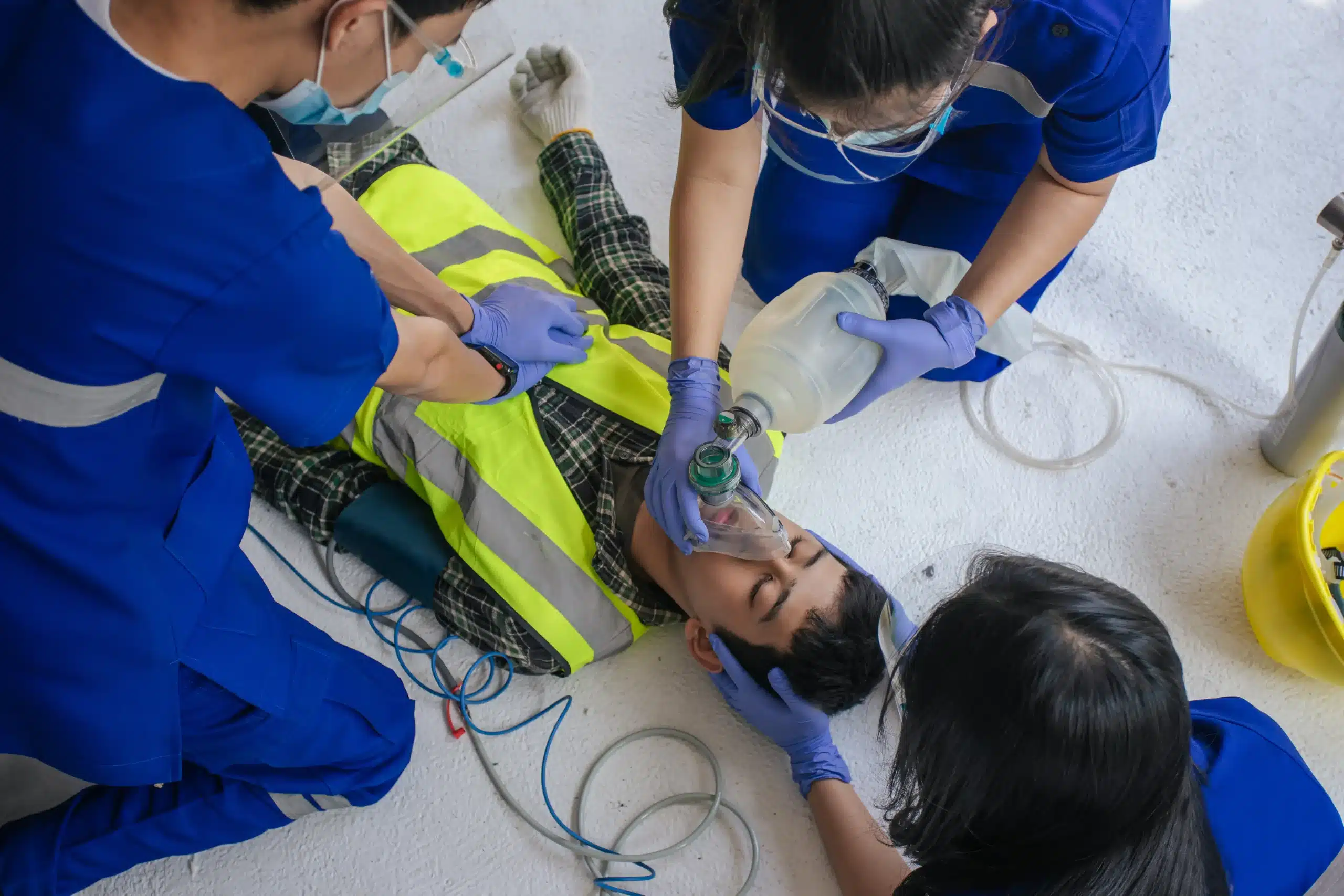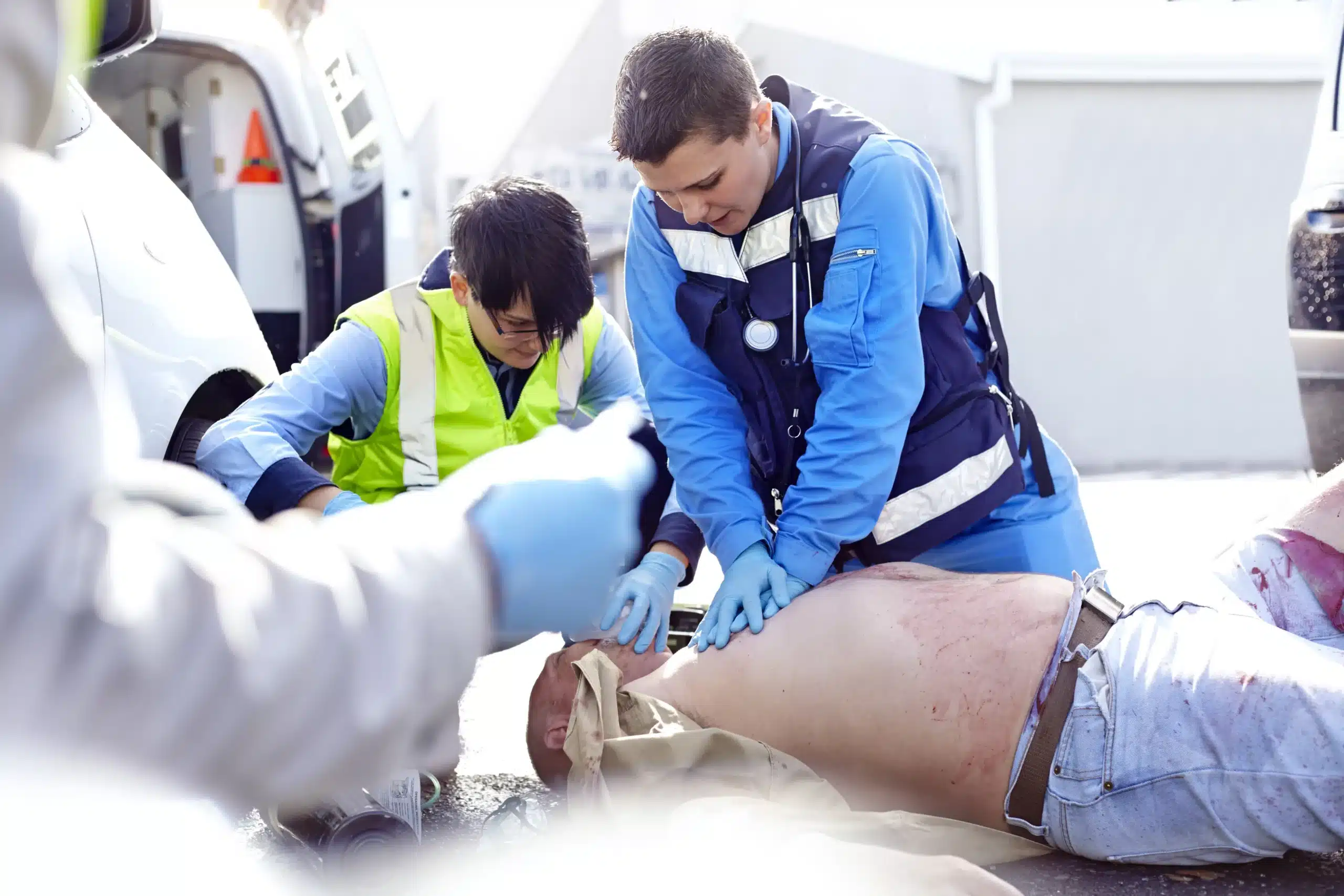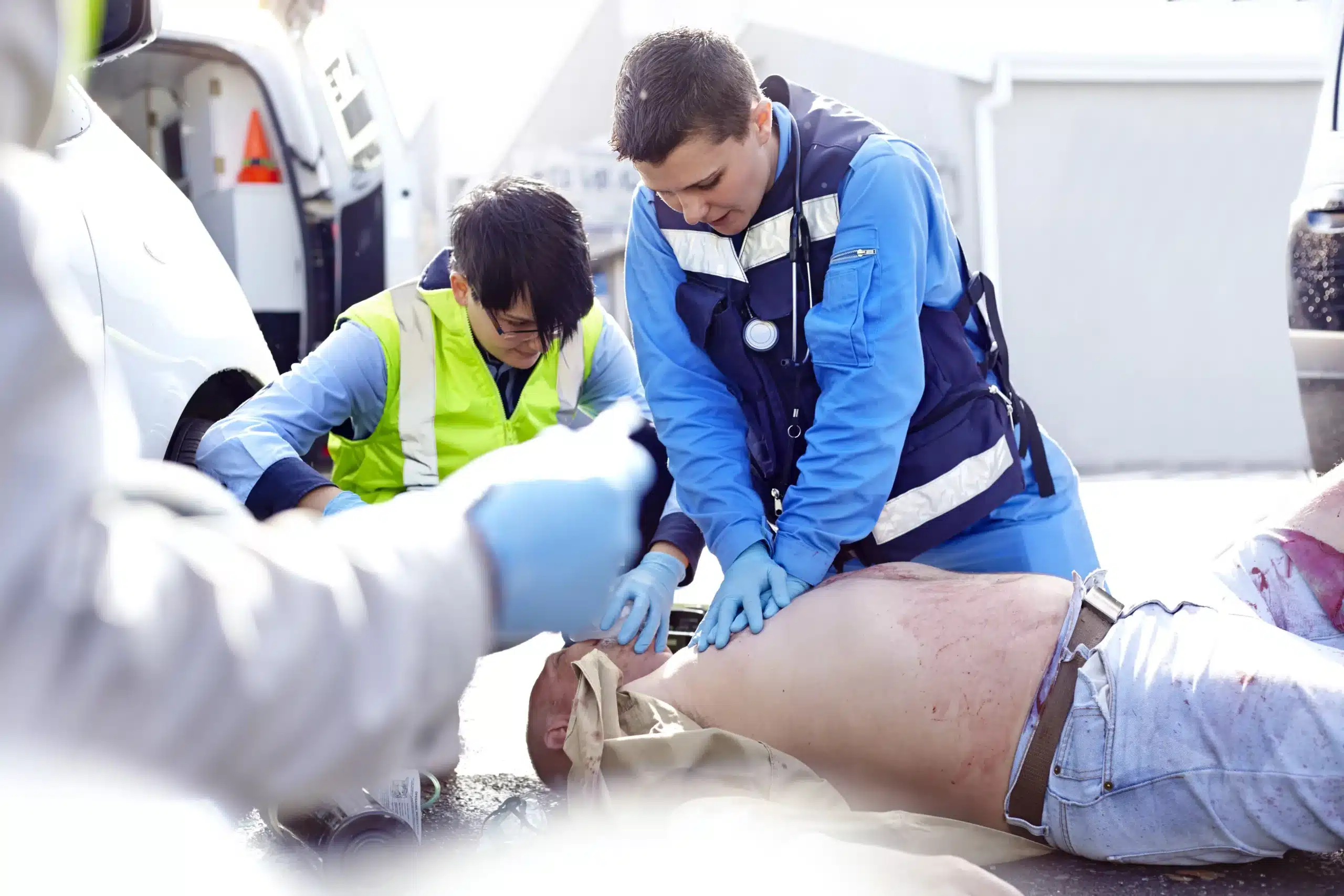Working in healthcare, you understand the importance of specialized training, especially when it comes to caring for children. In Union City, Pediatric Advanced Life Support (PALS) certification is a critical qualification for healthcare providers who treat infants and children. This in-depth guide will explore the key components of PALS training, the benefits of certification, and how to find the right course in Union City. We’ll cover everything from the core curriculum and hands-on practice to team dynamics and the certification process. We’ll also address common challenges faced by healthcare professionals during PALS training and offer practical tips for overcoming them. Join us as we delve into the world of PALS and discover how this specialized training can enhance your skills and confidence in providing exceptional pediatric care.
Key Takeaways
- PALS certification provides advanced life-saving skills: It goes beyond basic life support, giving healthcare professionals the training to manage pediatric emergencies like respiratory distress, shock, and cardiac arrest. This specialized knowledge is crucial for improving outcomes for young patients.
- Choosing the right PALS course requires careful consideration: Evaluate factors like cost, schedule, instructor experience, and the blend of online and in-person learning. Hands-on simulations and a focus on team dynamics are essential for practical application.
- Continued learning is vital for maintaining PALS proficiency: Use available resources like online study guides, practice tests, and peer study groups to reinforce your knowledge. Stay updated on the latest guidelines to ensure you’re always prepared to deliver the best care.
What is Pediatric Advanced Life Support (PALS)?
Pediatric Advanced Life Support (PALS) certification is a specialized course designed for healthcare providers who treat infants and children. It goes beyond basic life support (BLS) to equip professionals with the advanced knowledge and skills necessary to respond to life-threatening pediatric emergencies. PALS is a critical qualification for anyone working in pediatric care.
Key PALS Training Components
PALS training emphasizes a systematic approach to pediatric assessment, resuscitation, and stabilization. The course covers essential algorithms and best practices recommended for optimal outcomes during pediatric emergencies. Topics include respiratory emergencies, shock, and cardiopulmonary arrest. Through simulated pediatric emergencies, participants reinforce these concepts and practice effective resuscitation techniques. HealthForce Training Center offers more detail on PALS course content. Team dynamics and communication are also key components, ensuring coordinated responses in critical situations.
Why PALS is Important for Healthcare Professionals
PALS certification is invaluable for healthcare professionals involved in pediatric care. It provides the advanced training needed to confidently manage pediatric emergencies, making you a valuable asset in critical situations. By mastering the skills and knowledge taught in PALS courses, healthcare providers can significantly improve outcomes for their young patients. The American Heart Association emphasizes the importance of PALS training for recognizing and intervening in pediatric emergencies. This specialized training empowers professionals to deliver timely and appropriate care, ultimately increasing the chances of survival and positive outcomes for children.
Top PALS Certification Providers in Union City
Finding the right Pediatric Advanced Life Support (PALS) certification course is crucial for healthcare professionals working with children. Here’s a look at some providers offering PALS training in and around Union City:
Hayward CPR Classes
Hayward CPR Classes offers convenient, high-quality PALS certification for those living in and around Union City. They emphasize practical application and flexible scheduling, making it easier to fit training into a busy schedule. Their focus on hands-on learning helps build confidence and skills for responding effectively in pediatric emergencies. They also offer group discounts, a cost-effective option for teams.
Safety Training Seminars
Safety Training Seminars provides various CPR and first-aid courses, including PALS, in the Union City area. Led by American Heart Association-certified instructors, their courses adhere to the latest guidelines and cover essential skills for responding to pediatric emergencies, from basic life support to advanced airway management.
HealthForce Training Center
HealthForce Training Center offers PALS certification designed for healthcare providers working with infants and children. Their curriculum provides a comprehensive overview of pediatric emergencies, including respiratory distress, shock, and cardiac arrest. They focus on practical skills, medication administration, and understanding pediatric heart rhythms.
American Heart Association
The American Heart Association sets the standard for PALS training. Their PALS Provider Course equips healthcare providers with the knowledge and skills to manage pediatric emergencies. The course emphasizes high-performance team dynamics and strong individual skills, crucial for successful resuscitation. You can use their website to find certified training centers offering PALS courses near you.
American Red Cross
The American Red Cross also offers PALS certification courses that focus on recognizing and responding to life-threatening pediatric medical emergencies. Their training covers various scenarios, including respiratory and cardiac events, shock, and post-resuscitation care. Like the AHA, the Red Cross website helps you locate authorized providers in your area.
PALS Certification: Cost and Value
Understanding the cost and long-term value of PALS certification is key to making an informed decision about your training. While the certification represents an investment, it offers significant returns for healthcare professionals.
Average Course Costs
The average cost for PALS certification typically falls around $230, often covering your digital textbook. This price point is relatively consistent among providers like ACLS 123, ensuring you receive comprehensive training materials along with your certification. Hayward CPR Classes offers competitive pricing for all our courses, including PALS. Check our website for the latest information on PALS course costs.
Factors Affecting Costs
Several factors can influence PALS course costs. The course length, usually 10–12 hours, can shift based on your prior experience and the specific requirements of different healthcare facilities. This variation in training hours sometimes contributes to price differences between training centers. Heart Start CPR offers a helpful guide on factors to consider when choosing a PALS course.
Group Discounts and Packages
Many providers extend group discounts and flexible payment options for businesses. This can be a smart way to reduce training expenses when certifying multiple employees, making high-quality training more accessible for healthcare organizations. For businesses in Hayward, Union City, and San Leandro, Hayward CPR Classes offers special discounts for group bookings. Contact our team to discuss your specific needs and explore available options.
Long-Term Career Benefits
Earning your PALS certification not only equips you with life-saving skills but also strengthens your professional standing. The advanced training you’ll receive builds confidence in managing pediatric emergencies, making you a valuable asset in critical situations. Plus, PALS certification is frequently a prerequisite for many healthcare roles, demonstrating its importance for career growth. Learn more about the benefits of PALS certification from resources like San Leandro CPR Classes.
What to Expect in a PALS Training Course
PALS certification focuses on high-quality patient care and positive outcomes for pediatric patients. Expect a dynamic learning environment that combines theoretical knowledge with practical application. Here’s a breakdown of the key components:
Core Curriculum
The PALS course curriculum emphasizes a systematic approach to pediatric assessment, basic life support, PALS treatment algorithms, and effective resuscitation. You’ll learn the core concepts and algorithms for managing pediatric emergencies, including respiratory distress, shock, and cardiac arrest. This includes understanding the physiological differences between children and adults, which informs specific treatment strategies. A solid understanding of these algorithms is essential for passing the PALS certification exam.
Hands-on Practice and Simulations
PALS courses aren’t just about lectures. Expect significant hands-on training using realistic simulations. These simulations allow you to apply your knowledge in a controlled environment. You’ll work through various pediatric emergency scenarios, practicing essential skills like airway management, intravenous access, and medication administration. This practical experience is invaluable for building confidence and competence in real-world situations. For those seeking quality training, Hayward CPR Classes offers hands-on training in a supportive environment.
Team Dynamics and Communication
Effective teamwork and communication are crucial in pediatric emergency situations. PALS training emphasizes the importance of clear communication, defined roles, and coordinated efforts within a healthcare team. You’ll learn how to effectively communicate with other team members, family members, and other healthcare providers during a crisis. This focus on team dynamics prepares you to work collaboratively and efficiently in high-pressure environments. Consider supplementing your training with RQI classes to further develop these essential skills.
Certification Process and Duration
PALS certification typically involves a two-part exam: a written test and a practical skills test. You’ll need to demonstrate proficiency in both areas to earn your certification. The PALS Provider course usually takes between 10 and 12 hours to complete, depending on the specific course provider and format. After successful completion, your PALS certification is valid for two years. Contact us to learn more about our course schedule and certification process.
Instructor Qualifications and Course Quality
Choosing the right PALS course means finding qualified instructors dedicated to delivering high-quality training. How can you evaluate instructor expertise and ensure the course meets industry standards? Here’s what to look for:
Required Certifications and Experience
PALS instructors must hold specific certifications and demonstrate relevant experience. The Pediatric Advanced Life Support (PALS) course is a foundational requirement, ensuring instructors possess the same knowledge they aim to impart. Look for instructors with backgrounds in pediatric care, emergency medicine, or related fields. This practical experience adds depth to their teaching and allows them to connect classroom concepts to real-world scenarios. A strong foundation in pediatric care ensures instructors understand the nuances of treating young patients in emergencies.
Ongoing Instructor Education
The medical field is constantly evolving, so ongoing education is crucial for PALS instructors. The American Heart Association’s PALS Instructor Essentials course equips instructors with the latest guidelines and teaching methodologies. This commitment to continuous learning ensures instructors stay current with advancements in pediatric emergency care. Programs like the ALS & PALS Instructor Bridge, offered by the American Red Cross, allow instructors with equivalent training from other organizations to become certified PALS instructors, maintaining a consistent standard of instruction across different training providers.
Evaluating Instructor Expertise
Beyond certifications, consider how instructors translate their knowledge into practical skills. Effective PALS training emphasizes simulations and real-life scenarios, allowing participants to develop confidence and handle pediatric emergencies. Look for courses that prioritize hands-on practice and offer opportunities to work through realistic scenarios. Well-designed simulations are key to preparing healthcare providers for real-world challenges. Instructors should be adept at facilitating these simulations, providing constructive feedback, and creating a supportive learning environment. A focus on practical application, combined with up-to-date knowledge, ensures participants receive comprehensive and effective PALS training. The PALS Provider Course aims to improve outcomes for pediatric patients by equipping healthcare providers with the skills to recognize and intervene in critical situations. Choose an instructor who shares this commitment to practical, results-oriented training.
How to Register for PALS Courses in Union City
Finding the right PALS course in Union City is easier than you think. With several quality providers offering a mix of online and in-person classes, you can find training that fits your schedule and learning style.
Step-by-Step Registration
Many PALS providers offer a streamlined online registration process. You can typically browse available course dates, select your preferred format (online or in-person), and complete your registration in just a few clicks. Some providers, like Hayward CPR Classes, may also offer phone registration for a more personalized experience. Check the provider’s website for specific instructions.
Required Documentation
Before you register, it’s important to understand any prerequisites. The American Heart Association’s PALS Provider course is designed for healthcare providers who respond to pediatric emergencies. This includes personnel in emergency response, emergency medicine, intensive care, and critical care units. Make sure you have the necessary credentials and experience before you enroll.
Preparing for Your Course
PALS courses blend online learning with hands-on skills practice. To make the most of your training, take advantage of any pre-course materials or study guides offered by your provider. Familiarize yourself with the core concepts and prepare for the practical skills sessions, which often involve simulations and real-life scenarios. This preparation will help you build confidence and perform effectively during the course.
Overcome Common PALS Training Challenges
Let’s be honest, adding another training to your busy schedule can feel overwhelming. PALS training, while incredibly important, is no exception. But don’t worry, with a little planning and the right approach, you can absolutely conquer these common challenges.
Time Management Tips
One of the biggest hurdles healthcare providers face is finding the time for PALS training. Start by realistically assessing your current schedule and look for pockets of time you can dedicate to studying, even if it’s just 30 minutes a day. Treat your study time like any other important appointment and stick to it. Breaking the material down into smaller, manageable chunks can also make it feel less daunting. Consider using a planner or calendar to schedule specific study sessions and track your progress.
Mastering Complex Material
The PALS course material covers a lot of critical information. Instead of trying to memorize everything, focus on understanding the underlying concepts. This will help you apply your knowledge to different scenarios, which is key to passing the exam. Practice questions and case studies are your best friends here. They’ll help you identify areas where you need to focus your study efforts and get comfortable applying what you’ve learned. Study Finder offers helpful resources for practice.
Build Confidence in Your Skills
It’s normal to feel a little apprehensive about applying your PALS skills in a real-life emergency. That’s why hands-on practice and simulations are such an important part of the training. Take full advantage of these opportunities to practice your skills in a safe and controlled environment. Ask your instructor for feedback and guidance. The more you practice, the more confident you’ll become in your ability to respond effectively in a real emergency. Illinois Safety discusses the role of simulations in preparing for real-world emergencies.
Manage Test Anxiety
Test anxiety is something many people experience, and it’s perfectly understandable. One of the best ways to manage test anxiety is to be prepared. Create a study plan and stick to it. This will help you feel more in control and less overwhelmed. Practice good self-care leading up to the exam – get enough sleep, eat healthy meals, and engage in activities that help you relax. Remember, the PALS exam is designed to assess your ability to apply your knowledge, not just memorize facts. Focus on understanding the material and practicing your skills. Health Force Training Center provides some useful tips for approaching the PALS exam.
Maintain Your PALS Certification
Once you’ve earned your PALS certification, staying current is key to providing the best possible care. This section covers renewal requirements, continuing education opportunities, and how to stay up-to-date on the latest guidelines.
Renewal Requirements
PALS certification is valid for two years. After completing your PALS training, you’ll receive a course completion card, good for two years from the date of issue. Knowing your renewal date is essential, so mark it on your calendar or set a reminder. If you’re also certified in Advanced Cardiovascular Life Support, CPR1 clarifies the different requirements for PALS vs. ACLS certification.
Continuing Education Options
Beyond renewing your certification, ongoing education is crucial for maintaining proficiency in pediatric emergency care. Regular practice, structured training programs, and continuing education courses are all valuable tools. This article suggests incorporating mock code training and peer-assisted learning to sharpen your skills and boost your confidence. Working through case studies and practice questions—like those often included in PALS courses—can also be excellent preparation.
Stay Updated on Guidelines
Staying informed about the latest PALS guidelines ensures you’re always prepared to deliver the highest standard of care. The PALS Provider Course focuses on improving outcomes for pediatric patients by equipping healthcare providers with the skills to recognize and intervene in respiratory emergencies, shock, and cardiopulmonary arrest. This involves high-performance team dynamics and top-notch individual skills. Given the critical role of PALS certification for healthcare providers involved in pediatric care, staying updated is a must, as emphasized by this article on PALS certification challenges. Regularly check the American Heart Association website for updates and consider subscribing to relevant journals or newsletters to stay informed about evolving best practices.
Additional PALS Resources and Support
Preparing for your PALS certification or simply want to brush up on your skills? There are tons of resources available to help you succeed. Here are a few to explore:
Online Study Guides and Practice Tests
Want to test your knowledge and identify areas for improvement? Online study guides and practice tests are great tools. Many websites offer PALS practice questions and comprehensive study materials. Working through these practice tests can be excellent preparation for the PALS exam, familiarizing you with the format and types of questions you might encounter. This is especially helpful for those who haven’t taken a certification exam in a while.
Mobile Apps and Learning Platforms
Juggling work, family, and studying? Mobile apps and learning platforms offer flexibility and convenience. You can study on your own time, wherever you are. Some apps provide interactive lessons, videos, and quizzes to reinforce key concepts. Many courses use a multi-disciplinary approach developed by healthcare professionals, creating realistic clinical scenarios that challenge participants. ACLS Online is one example of a platform offering this type of training.
Peer Study Groups and Networking
Connecting with other healthcare providers preparing for PALS can be incredibly valuable. Consider forming a study group to share knowledge, discuss challenging concepts, and offer mutual support. Working through the challenges of PALS certification is often easier with a support system. Networking with colleagues can also provide insights into different learning strategies and resources. Sharing tips and experiences can make a big difference in your preparation.
Webinars and Workshops
Webinars and workshops can offer a deeper dive into specific PALS topics or provide a refresher on essential skills. Look for online or in-person sessions that align with your learning needs and schedule. These sessions often feature expert instructors and opportunities for interactive learning. PALS certification classes often emphasize simulations and real-life scenarios to build confidence for real-world emergencies. Webinars and workshops can offer similar benefits, allowing you to practice your skills in a safe and controlled environment.
Choose the Right PALS Course
Finding the right Pediatric Advanced Life Support (PALS) course is crucial for your success. It’s not just about getting certified; it’s about gaining the confidence and skills to provide effective care in emergencies. Here’s what to consider when selecting a PALS course:
Compare Course Offerings and Flexibility
One size doesn’t fit all when it comes to PALS training. Think about your schedule and learning style. Some providers, like San Leandro CPR Classes, offer flexible scheduling, including weekend and evening classes, which can be helpful for busy professionals. Also, consider the location and whether online or in-person learning better suits your needs. Union City residents find San Leandro CPR Classes convenient and accessible.
Evaluate Additional Resources
Look for courses that offer valuable extras beyond the core curriculum. Supplemental materials like online study guides, practice tests, or refresher courses can significantly improve your learning. ACLS Online uses real-world clinical scenarios developed by various healthcare professionals. This practical application can make a real difference in your ability to respond effectively during a crisis.
Consider Pre-Course Requirements
Some PALS courses may have prerequisites, such as completing a basic life support (BLS) certification or an online pre-course. ACLS Plus Education, for example, requires a 4-hour online PALS pre-course before the in-person skills session. Understanding these requirements upfront helps you plan and avoid surprises.
Assess Post-Certification Support
Your learning shouldn’t stop at certification. See if the provider offers continued support, like access to updated guidelines or refresher materials. CPR Care includes helpful training videos with their PALS courses, providing resources you can review even after completing the training. Continued access to information helps you maintain your skills and stay current with pediatric emergency care advancements.
Related Articles
- AHA PALS Classes in Hayward, CA – Hayward CPR Classes
- BLS ACLS PALS Training in Hayward: Your Full Guide – Hayward CPR Classes
- NRP Certification in Union City: Your Guide – Hayward CPR Classes
- First Aid in Union City: Your Complete Guide – Hayward CPR Classes
- CPR Renewal in Union City: A Complete Guide
Frequently Asked Questions
What is the difference between PALS and BLS?
BLS, or Basic Life Support, teaches the fundamentals of CPR and focuses on immediate life-saving interventions for all ages. PALS builds upon BLS, providing advanced knowledge and skills specifically for managing pediatric emergencies. Think of BLS as the foundation and PALS as the specialized structure built on top.
How long is PALS certification valid?
PALS certification is typically valid for two years. It’s essential to keep track of your certification expiration date and renew it promptly to maintain your credentials and stay up-to-date with the latest guidelines.
What if my PALS certification expires?
If your PALS certification expires, you’ll need to retake the course and pass the certification exam to regain your active status. It’s always best to plan for renewal before your certification lapses to avoid any gaps in your qualifications.
What can I expect during a PALS course?
PALS courses combine classroom learning with hands-on practice. Expect a dynamic learning environment that covers essential algorithms, simulations of pediatric emergencies, and a focus on team dynamics and communication. You’ll also have the opportunity to practice key skills like airway management and medication administration.
How do I choose the right PALS provider?
When selecting a PALS provider, consider factors like instructor qualifications, course flexibility, available resources, and post-certification support. Look for providers who offer hands-on training, convenient scheduling, and ongoing educational opportunities to help you maintain your skills.
